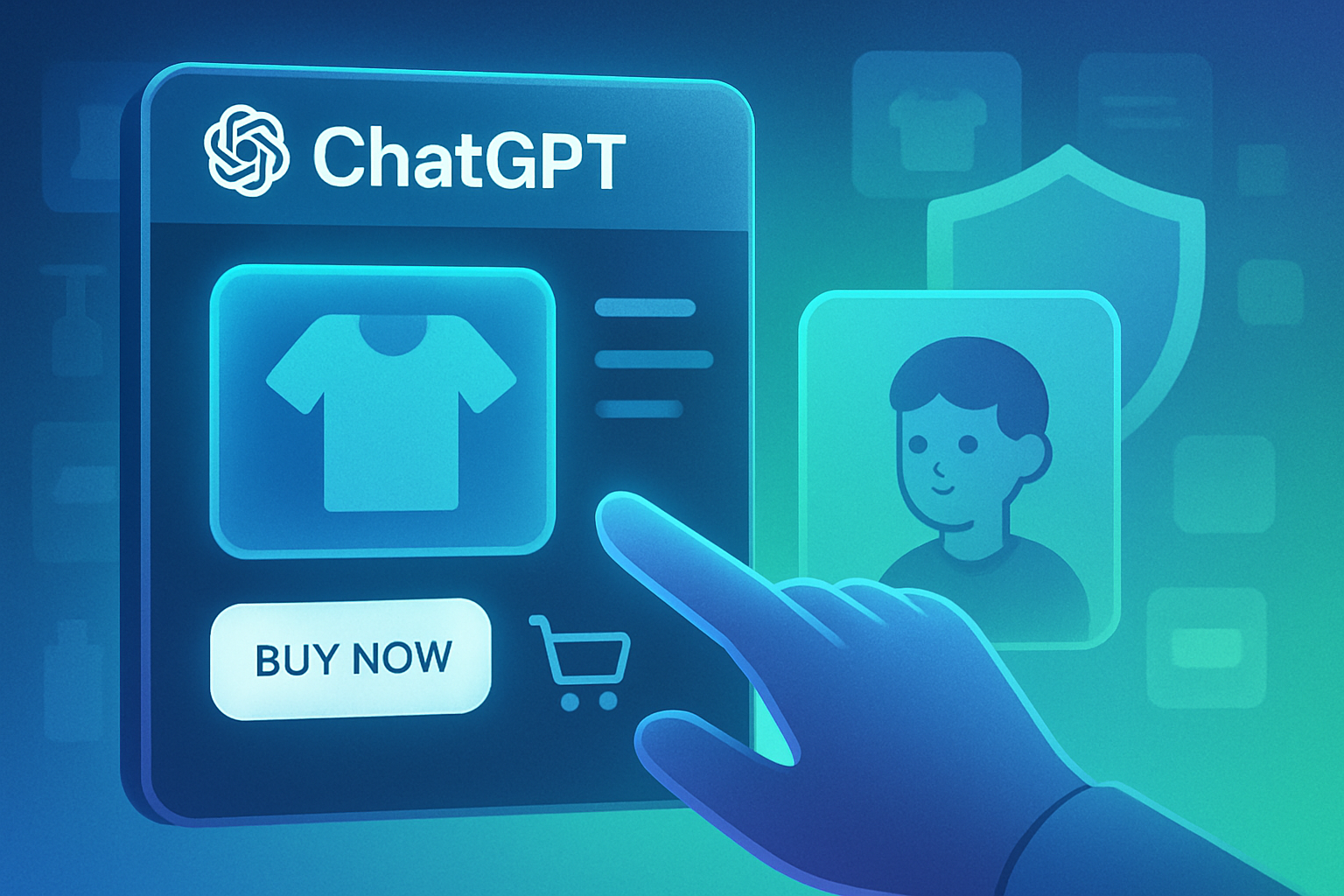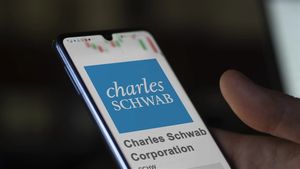
San Francisco, CA – September 29, 2025 – In a move set to redefine both online safety and digital commerce, artificial intelligence powerhouse OpenAI has today unveiled two groundbreaking features for its flagship chatbot, ChatGPT. Simultaneously launching robust parental controls designed to safeguard teen users and an innovative "Instant Checkout" feature enabling direct product purchases within the chat interface, OpenAI (a private company) is positioning itself at the forefront of a new era for AI-driven interaction and transaction. These developments mark a significant strategic pivot, promising to create new revenue streams while addressing critical societal concerns surrounding AI's accessibility to younger demographics.
The dual launch on this pivotal day underscores OpenAI's ambition to expand ChatGPT's utility far beyond a conversational tool. By embedding transactional capabilities, the company is directly challenging traditional e-commerce paradigms and search engine dominance, while the introduction of comprehensive parental controls demonstrates a proactive approach to responsible AI deployment amidst growing public and regulatory scrutiny. This convergence of safety and commerce highlights a future where AI agents become integral to daily life, from managing information consumption to facilitating instant shopping experiences.
A New Frontier in AI-Driven Commerce and Digital Guardianship
Today's rollout of parental controls for ChatGPT on the web, with mobile integration on the horizon, represents a significant stride in creating a safer digital environment for younger users. Recognizing the widespread adoption of AI tools among teenagers, OpenAI has introduced a suite of features that allow parents to link their ChatGPT accounts with those of their children (aged 13 and above). This linking automatically activates stronger safeguards, including a "Sensitive Content Reduction" setting designed to minimize exposure to potentially harmful or inappropriate content, which parents can manage but teens cannot disable. Further controls empower parents to manage ChatGPT's memory function, set "Quiet Hours" for usage, disable specific features like Voice mode and image creation, and decide on data usage for model improvement. While direct access to chat history is generally restricted for privacy, OpenAI's systems are equipped to detect serious safety risks, such as self-harm, triggering notifications to parents. This initiative responds to increasing calls for greater accountability in AI, particularly concerning its impact on minors.
Concurrently, OpenAI has elevated its foray into e-commerce with the launch of "Instant Checkout," a feature that allows users to complete product purchases directly within the ChatGPT interface. This builds upon an initial phase rolled out on April 28, 2025, which introduced personalized product recommendations, images, user reviews, and direct links to external retailer websites like Walmart (NYSE: WMT) and Best Buy (NYSE: BBY). The "Instant Checkout" functionality, launched today, is powered by the "Agentic Commerce Protocol," an open standard co-developed with payment processing giant Stripe (a private company). Initially, this seamless purchasing experience supports single-item transactions from U.S. Etsy (NASDAQ: ETSY) sellers for all U.S. ChatGPT Plus, Pro, and Free users. OpenAI has ambitious plans to rapidly expand this to over a million Shopify (NYSE: SHOP) merchants, introduce multi-item carts, and broaden its geographical availability. This move is a clear signal of OpenAI's intent to capture a share of the burgeoning e-commerce market by offering a frictionless, AI-guided shopping journey, and crucially, OpenAI will earn commissions from these in-app purchases, establishing a potent new revenue stream.
Navigating the Shifting Sands: Potential Winners and Losers
OpenAI's latest strategic maneuvers are set to send ripples across various industries, creating clear winners and posing significant challenges for others. Unsurprisingly, OpenAI itself stands to be a major beneficiary. The "Instant Checkout" feature opens up a direct monetization channel beyond subscriptions and enterprise solutions, leveraging its massive user base to generate transaction-based revenue. Furthermore, by addressing safety concerns proactively with parental controls, OpenAI enhances its brand reputation and potentially fends off future regulatory hurdles, paving the way for broader adoption and trust.
E-commerce platforms and retailers that embrace integration with ChatGPT could emerge as significant winners. Companies like Etsy (NASDAQ: ETSY) and, eventually, Shopify (NYSE: SHOP) merchants, who are among the first to enable direct purchases through the platform, gain access to a vast, engaged user base and a novel sales channel. This could lead to increased sales volumes and reduced customer acquisition costs. Payment processors like Stripe also win by powering the underlying "Agentic Commerce Protocol," solidifying their position in the evolving landscape of AI-driven transactions. Conversely, traditional e-commerce giants and retailers slow to adapt or integrate with AI agents might find themselves at a disadvantage. Their reliance on users navigating to external websites could feel cumbersome compared to ChatGPT's seamless in-app purchasing experience.
The biggest potential losers could be traditional search engines, most notably Alphabet's Google (NASDAQ: GOOGL). For years, Google has been the primary gateway for product discovery, monetizing through search ads. If users increasingly turn to ChatGPT for personalized product recommendations and direct purchases, it could erode Google's market share in a critical advertising segment. Similarly, comparison shopping sites and affiliate marketers who rely on directing traffic to external retailers might see their business models challenged as the entire transaction shifts inside the AI interface. The competitive landscape for online product discovery is undergoing a seismic shift, and companies that don't innovate quickly to integrate AI into their customer journeys risk being left behind.
Wider Significance: Reshaping Digital Commerce and AI Ethics
The launch of direct purchasing within ChatGPT signifies a profound shift towards "Agentic Commerce," where AI agents facilitate and complete transactions on behalf of users. This move is not merely an incremental improvement in online shopping; it represents a fundamental re-imagining of the entire purchasing funnel. By eliminating the need to browse multiple websites or navigate complex checkout processes, OpenAI is driving a trend towards hyper-convenience and personalized shopping experiences. This fits into a broader industry trend of conversational AI becoming a primary interface for various digital tasks, from information retrieval to task execution. The "Agentic Commerce Protocol" being open-sourced further indicates a vision for a decentralized, AI-driven marketplace where various agents and businesses can seamlessly interact to facilitate commerce.
The ripple effects on competitors are substantial. Traditional e-commerce platforms will need to rapidly innovate, either by integrating AI agents into their own platforms or by becoming integral parts of the "Agentic Commerce" ecosystem. The battle for product discovery, traditionally dominated by search engines and social media, is now extending into the conversational AI space. Companies that can provide the most relevant, trusted, and seamless AI-driven recommendations will gain a significant competitive edge. Furthermore, the regulatory implications of both features are considerable. The parental controls, while a proactive step, will likely face ongoing scrutiny regarding their effectiveness, data privacy, and the evolving definition of "age-appropriate" content in AI interactions. For direct purchasing, regulators will need to address issues of consumer protection, data security, antitrust concerns if a single AI platform becomes too dominant, and the transparency of AI-driven recommendations (e.g., whether they are truly organic or influenced by commissions).
Historically, the integration of new technologies into commerce has always led to significant disruption and new opportunities. The advent of e-commerce itself, mobile shopping, and social commerce each reshaped consumer behavior and market dynamics. OpenAI's move with "Agentic Commerce" draws parallels to these shifts, suggesting a similar, if not more profound, transformation in how products are discovered, evaluated, and purchased. The ethical considerations surrounding AI, particularly regarding children's safety and the potential for algorithmic bias in product recommendations, will remain central to public discourse and regulatory efforts, shaping the long-term trajectory of these innovations.
What Comes Next: The Future of AI in Daily Life
In the short term, the immediate focus for OpenAI will be the rapid expansion of its "Instant Checkout" feature. Expect to see swift integration with a wider array of merchants beyond Etsy (NASDAQ: ETSY), particularly Shopify (NYSE: SHOP) sellers, and the introduction of multi-item shopping carts. The geographical rollout will also be a key priority, extending the feature beyond U.S. users. On the safety front, the effectiveness and user adoption of the parental controls will be closely monitored, with potential refinements based on user feedback and emerging safety challenges. Competitors, particularly major tech players like Google (NASDAQ: GOOGL) and Amazon (NASDAQ: AMZN), are likely to accelerate their own AI-driven e-commerce and safety initiatives, leading to an intensified innovation race in the conversational AI space.
Looking further ahead, the long-term possibilities are transformative. "Agentic Commerce" could evolve into highly sophisticated personal shopping assistants that anticipate needs, manage subscriptions, negotiate prices, and even coordinate deliveries, all within a conversational interface. This could lead to a significant reduction in friction for consumers and open up entirely new business models for retailers and service providers. Strategic pivots will be essential for many companies: traditional e-commerce platforms may need to become AI-first, while brands will have to adapt their marketing and sales strategies to resonate within conversational AI environments. Market opportunities will emerge for developers creating AI agents, for data analytics firms specializing in conversational commerce insights, and for companies providing ethical AI auditing services. Potential scenarios range from a highly efficient, personalized shopping ecosystem to increased concerns over data privacy, algorithmic control over consumer choices, and the digital divide for those without access to advanced AI tools.
Comprehensive Wrap-up: A Dual Revolution Unfolds
Today's dual launch from OpenAI marks a pivotal moment in the evolution of artificial intelligence, simultaneously addressing critical societal concerns and unleashing a powerful new paradigm for digital commerce. The introduction of comprehensive parental controls for ChatGPT underscores a commitment to responsible AI deployment, aiming to create a safer and more age-appropriate digital experience for teens. This move is not just a reactive measure but a proactive step towards building trust and ensuring the sustainable growth of AI technologies.
In parallel, the "Instant Checkout" feature, powered by the "Agentic Commerce Protocol," represents a bold leap into the future of e-commerce. By enabling direct product purchases within the conversational AI interface, OpenAI is poised to disrupt traditional online shopping models, challenge the dominance of search engines in product discovery, and unlock significant new revenue streams. This innovation promises a more seamless, personalized, and efficient shopping journey for consumers, while offering new avenues for merchants to reach a vast audience.
Moving forward, the market will closely watch several key indicators. Investors should monitor the adoption rates of the parental controls and their impact on user demographics. On the commerce front, the speed and scale of merchant integration, particularly with major platforms like Shopify (NYSE: SHOP), and the overall transaction volumes generated through ChatGPT will be crucial metrics. The competitive response from other tech giants and the evolving regulatory landscape surrounding AI safety and commerce will also be critical factors. OpenAI's dual revolution today signals a future where AI is not just a tool for information, but a trusted agent for both personal well-being and economic activity, fundamentally reshaping our digital lives.
This content is intended for informational purposes only and is not financial advice.





